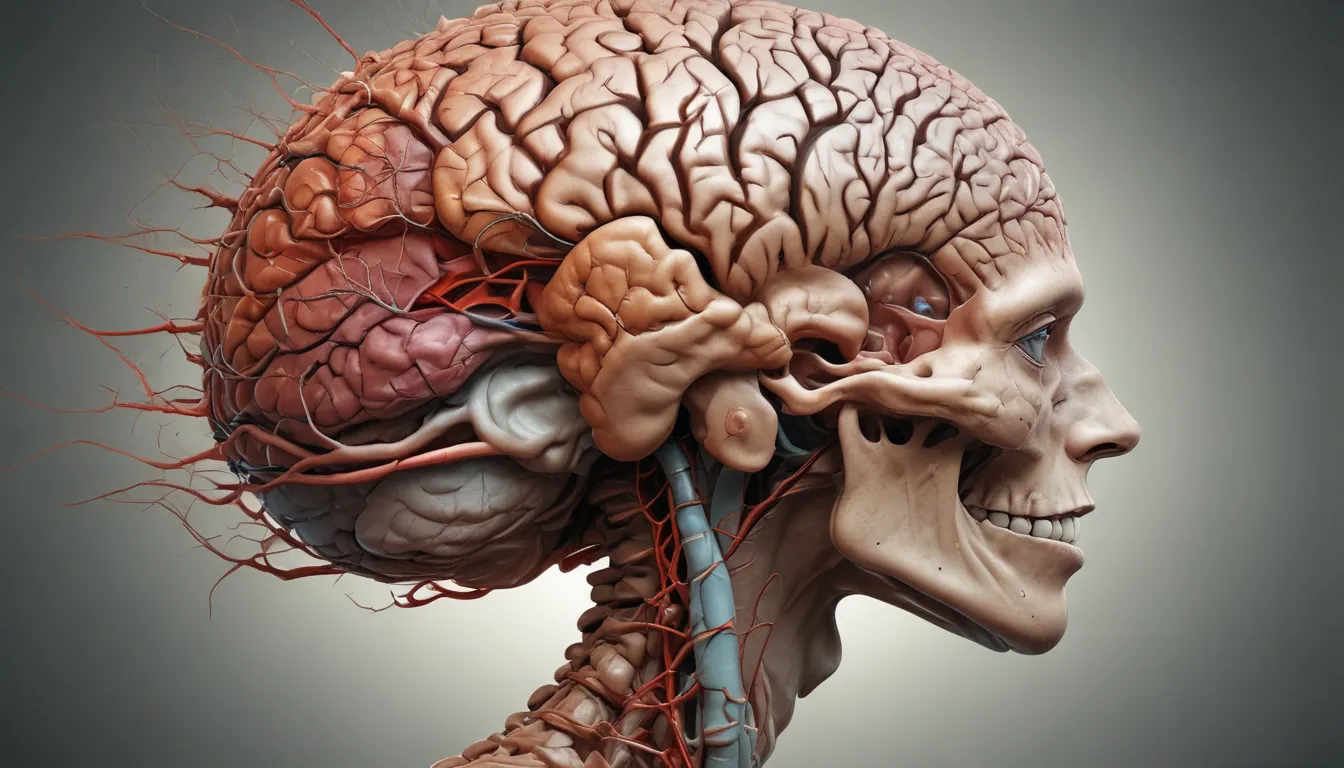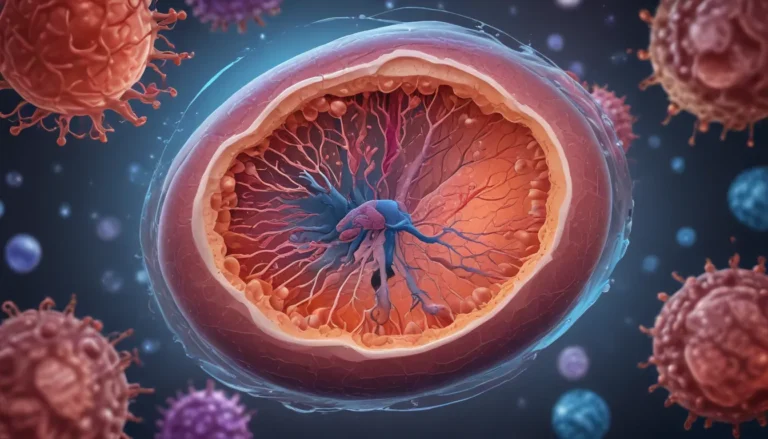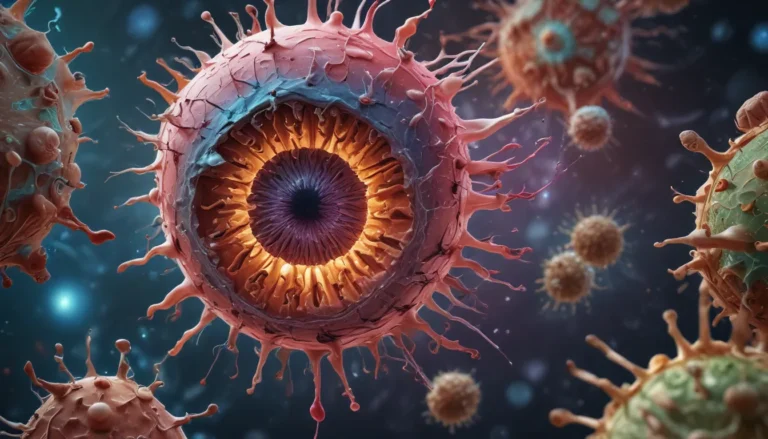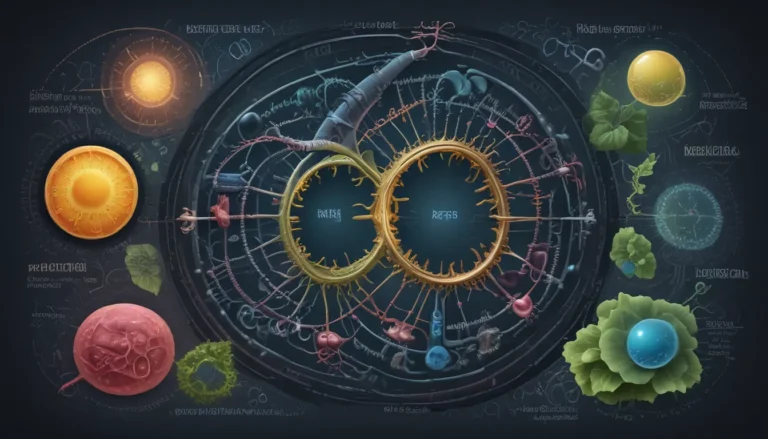A Note About Images: The images used in our articles are for illustration purposes only and may not exactly match the content. They are meant to engage readers, but the text should be relied upon for accurate information.
The hypothalamus, a small yet powerful structure nestled at the base of the brain, serves as a vital regulator of numerous bodily functions, ensuring our overall well-being and balance. This fascinating organ remains shrouded in mystery for many, but delving into its intricate functions reveals a world of awe-inspiring capabilities. From managing our stress response to influencing our appetite, sleep patterns, and emotions, the hypothalamus plays a pivotal role in maintaining homeostasis. Let’s embark on a journey to uncover 20 surprising facts about the hypothalamus, shedding light on its remarkable functions and contributions to our health.
Key Takeaways:
- The Hypothalamus acts as the control center of our body, overseeing essential functions like hunger, sleep, emotions, and reproduction. It’s a small yet mighty part of the brain that ensures we stay balanced and healthy. Scientists continue to unveil the secrets of this intricate organ, highlighting its significance in keeping us functioning optimally.
The Hypothalamus – Master of the Autonomic Nervous System
The hypothalamus, a tiny but mighty brain region, holds the reins of the autonomic nervous system, governing vital functions such as body temperature, hunger, thirst, and sleep cycles.
The Hypothalamus – Bridge Between the Nervous and Endocrine Systems
Acting as a crucial intermediary between the nervous and endocrine systems, the hypothalamus orchestrates the release of hormones from the pituitary gland, regulating key bodily processes like growth, reproduction, and metabolism.
The Hypothalamus – Guardian of Our Biological Clock
Within the hypothalamus resides the suprachiasmatic nucleus, a specialized group of cells that serve as our internal clock, guiding our sleep-wake patterns and influencing hormone release, body temperature, and other physiological rhythms.
The Hypothalamus – Maestro of Hunger and Thirst Sensations
Feeling a pang of hunger or thirst? Thanks to the hypothalamus, this remarkable brain region swiftly responds to changes in blood chemistry, prompting signals that fuel our craving for water or food, ensuring our bodies remain hydrated and nourished.
The Hypothalamus – Custodian of Body Temperature
Our body’s internal thermostat is none other than the hypothalamus. Detecting fluctuations in temperature, it triggers mechanisms to cool us down or warm us up, preserving a narrow temperature range vital for optimal bodily function.
The Hypothalamus – Partner in the Body’s Stress Response
In times of stress, the hypothalamus springs into action, releasing corticotropin-releasing hormone to kickstart the production of stress hormones like cortisol. These hormones help our bodies cope with stress and regulate various physiological responses.
The Hypothalamus – Influencer of Emotional Behavior
Ever pondered why certain situations evoke strong emotional reactions? The hypothalamus plays a key role in governing our emotional behavior, collaborating with other brain regions to regulate emotions such as fear, pleasure, and aggression.
The Hypothalamus – Architect of Sexual Behavior and Reproduction
Delving into sexual development, behavior, and reproduction, the hypothalamus releases gonadotropin-releasing hormone, stimulating the production and release of sex hormones that shape fertility and sexual function.
The Hypothalamus – Conductor of Growth Hormone Release
At the helm of the endocrine system, the hypothalamus oversees the secretion of growth hormone from the pituitary gland, a critical factor in proper growth and development, particularly during childhood and adolescence.
The Hypothalamus – Guardian of Blood Pressure and Heart Rate
Maintaining optimal cardiovascular health, the hypothalamus regulates blood pressure and heart rate by integrating signals from various body parts, ensuring these essential functions operate within healthy parameters.
The Hypothalamus – Influencer of Sleep Patterns
Struggling with sleep disturbances? The hypothalamus may play a role in this. Its intricate network of neurons modulates hormone release that influences both wakefulness and sleep, aiding in the regulation of our sleep-wake cycles.
The Hypothalamus – Custodian of Body Weight Regulation
Central to maintaining a healthy body weight, the hypothalamus detects variations in nutrient levels and releases hormones that govern appetite and metabolism, safeguarding energy balance and averting weight-related disorders.
The Hypothalamus – Generator of Oxytocin Release
Frequently dubbed the “love hormone,” oxytocin emanates from the hypothalamus, fostering social bonds, trust, and emotional connections critical in maternal behavior, pair bonding, and social interactions.
The Hypothalamus – Participant in Thermoregulation During Fever
When illness strikes, the hypothalamus elevates body temperature to induce fever, aiding in combating pathogens and boosting immune efficiency, thus expediting the recovery process.
The Hypothalamus – Coordinator of the Stress Response
During stressful encounters, the hypothalamus coordinates the body’s stress response by releasing hormones that prompt the adrenal glands to secrete cortisol, priming the body for action and fortifying our ability to manage stress.
The Hypothalamus – Regulator of Hormones Involved in Milk Production
In the realm of lactation, the hypothalamus oversees the release of prolactin, an essential hormone for milk production, ensuring nursing mothers can adequately nurture their infants.
The Hypothalamus – Guardian of Body Fluid Balance
Maintaining body fluid equilibrium, the hypothalamus fine-tunes fluid levels by regulating the release of antidiuretic hormone (ADH), also known as vasopressin, which modulates water reabsorption in the kidneys, averting excess fluid loss.
The Hypothalamus – Detector and Responder to Pain
Pain signals captured by the hypothalamus influence pain interpretation and response. It triggers the release of endorphins, the body’s natural pain-relievers, potentially shaping our pain perception.
The Hypothalamus – Orchestrator of Fight or Flight Response
In moments of peril, the hypothalamus orchestrates the body’s fight or flight response by initiating the release of stress hormones, priming the body to confront the threat or swiftly retreat, safeguarding survival.
The Hypothalamus – Ever-Evolving Enigma Engaging Researchers
Despite extensive research, the hypothalamus retains its veil of secrets, captivating scientists who continuously unearth new insights into its intricate functions and its impact on overall well-being and health.
These 20 captivating facts about the hypothalamus illuminate its profound significance in regulating myriad bodily functions. From its pivotal role in the autonomic nervous system to its influence on emotions, sleep patterns, and reproduction, the hypothalamus emerges as a captivating and indispensable brain component. Serving as a vital nexus between the nervous and endocrine systems, it orchestrates a ballet of hormones and signals that sustain our bodily harmony.
The next time you marvel at your body’s wonders, reserve a moment to acknowledge the extraordinary hypothalamus, the mastermind shaping countless physiological processes.
Conclusion
In conclusion, the hypothalamus stands as a profound and intricate brain region instrumental in governing diverse bodily functions and preserving homeostasis. From managing core functions like body temperature and sleep-wake cycles to regulating emotions and hunger, the hypothalamus emerges as a powerhouse of the brain landscape. Our exploration of 20 surprising facts about the hypothalamus unveils its remarkable capabilities, shedding light on its multifaceted contributions. Whether in spearheading the body’s stress response, orchestrating reproduction and maternal instincts, or interconnecting with other brain regions, the hypothalamus continues to captivate scientists and researchers globally. Understanding the mesmerizing intricacies of the hypothalamus not only expands our comprehension of the human body but also unveils potential insights into disorders and diseases affecting its operation. In essence, the hypothalamus stands as a marvel of nature, showcasing the brilliance inherent in the human brain.
FAQs:
-
What is the hypothalamus?
The hypothalamus is a small almond-sized brain region situated in the diencephalon, responsible for regulating a wide array of bodily functions and upholding homeostasis. -
What are some key functions of the hypothalamus?
The hypothalamus governs body temperature, hunger, thirst, sleep-wake cycles, emotions, hormone production, and various aspects of the autonomic nervous system. -
How does the hypothalamus regulate body temperature?
By receiving inputs from temperature receptors across the body, the hypothalamus initiates appropriate physiological responses such as sweating or shivering to uphold stable body temperature. -
How does the hypothalamus control hunger and thirst?
The hypothalamus processes signals from the body indicating hunger and thirst levels, subsequently releasing neuropeptides that modulate appetite and thirst, ensuring regulated food and fluid intake. -
Can damage to the hypothalamus lead to health issues?
Yes, damage to the hypothalamus can result in various health concerns like obesity, sleep disturbances, hormonal irregularities, and disruptions in temperature regulation. -
Does the hypothalamus play a role in reproductive functions?
Indeed, the hypothalamus intricately partakes in reproductive functions by secreting hormones that influence the pituitary gland’s release of reproductive hormones. -
Can the hypothalamus impact emotions?
Yes, the hypothalamus significantly influences emotions by interfacing with other brain regions responsible for emotional processing. -
Is targeting the hypothalamus feasible for therapeutic purposes?
Research endeavors explore targeting the hypothalamus for potential therapeutic applications in conditions such as obesity, sleep disorders, and hormonal imbalances. -
Can stress affect the hypothalamus?
Absolutely, the hypothalamus plays a pivotal role in the body’s stress response, releasing hormones that prompt the adrenal glands to produce cortisol, gearing the body for the fight-or-flight response. -
How do scientists study the hypothalamus?
Scientists employ diverse methodologies including neuroimaging, animal studies, and molecular biology to investigate the hypothalamus and decipher its intricate operations.
Your Contributions Matter!
Our mission to provide trustworthy and captivating content is driven by contributors like you, enriching our platform with a wealth of diverse insights and information. Upholding the highest standards of accuracy and authenticity, our dedicated editors meticulously review each submission, ensuring that the facts shared are not only intriguing but also reliable. Place your trust in our unwavering commitment to quality and authenticity as you embark on a journey of exploration and learning with us.






